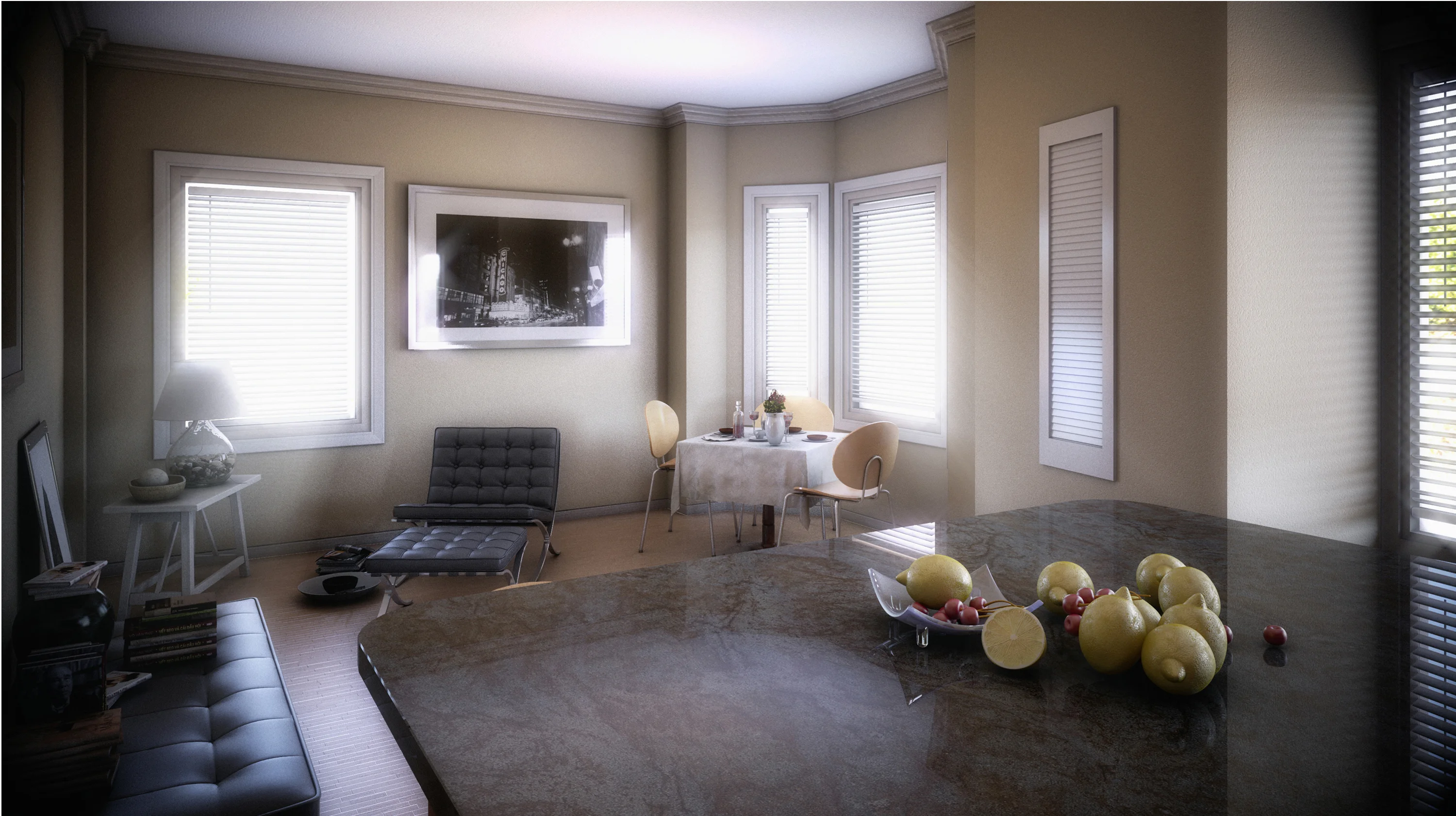Best Point of View
There may come a day, when fine tuning all the controls in your render engine is all done by the computer, but I can't ever imagine there will come a time when a render engine will be able to tell you what the best point of view is. There are two constants in the art of renderings; "seeing" and composition, and no amount of technology will replace either. The good news is that you can learn both the art of composition and how to "see".
Architectural rendering composition is based, in part, on order and structure. Every great rendering owes much of its success to the way it is composed, which is, in essence, the way the elements are arranged.
Did you enjoy this blog post? If so, then why not:
Leave Comment | Subscribe To This Blog | Email Me
Magician
Artists aren't magicians. There's no penalty for revealing your secretes.
Did you enjoy this blog post? If so, then why not:
Leave Comment | Subscribe To This Blog | Email Me
Good Theft vs. Bad Theft
“At some point, you’ll have to move from imitating your heroes to emulating them. Imitation is about copying. Emulation is when imitation goes one step further, breaking through into your own thing.”
Did you enjoy this blog post? If so, then why not:
Leave Comment | Subscribe To This Blog | Email Me
How to Look at the World (Like an Artist)
“Where do you get your ideas?”
The honest artist answer,
“I steal them”
How does an artist look at the world?
First, you figure out what's worth stealing, then you move on to the next thing.
Did you enjoy this blog post? If so, then why not:
Leave Comment | Subscribe To This Blog | Email Me
Make Every Detail Perfect
““Make every detail perfect, and limit the number of details to perfect.””
Did you enjoy this blog post? If so, then why not:
Leave Comment | Subscribe To This Blog | Email Me
Architectural Rendering Art
It is said that a picture is worth a thousand words, and this is particularly true in the field of architectural renderings. There is no better medium than a balanced, well-done rendering, for capturing and displaying the look and feel of a building.
At what point does architectural rendering become art, and how can we differentiate between artistic architectural renderings and its documentary sibling?
The variety of definitions that exist justify some inquiry. The following are a few that come to mind:
“An action by means of which one man, having experienced a feeling, intentionally transmits it to others”
“Art is nature expressed through personality”
“Everything which we distinguish from nature”
“Art is the expression of pleasure in work”
Please, bookmark this, because I am going to add to it as my thoughts develop. If you would like to contribute please, leave me some feedback.
Did you enjoy this blog post? If so, then why not:
Leave Comment | Subscribe To This Blog | Email Me
Chicago Apartment
Here are two more interior spaces of another Chicago apartment. My machine's are acting wonky, and my render times are through the roof, so I am done for now. It's a really small space so I used furniture sparingly. I also used a lot of monochrome to give it that urban feeling.
Did you enjoy this blog post? If so, then why not:
Leave Comment | Subscribe To This Blog | Email Me
Soft Glowing Atmosphere.
Soft glowing effects are common in portrait photography but are not used often for 3-D Architectural Renderings. The 3-D artist usually likes the sharpest possible image, and using a soft filter would be counter intuitive But, in certain circumstances a soft focus of an Architectural Rendering can enhance the mood of a rendering by creating a soft glowing atmosphere.
Did you enjoy this blog post? If so, then why not:
Leave Comment | Subscribe To This Blog | Email Me
Keep it Intriguing
While the overall appearance of a building can oftentimes be fascinating on its own, many buildings have small designs details that can stick out. Just think of all the smaller characters of an old church or cathedral, for example, such as sculptured gargoyles and angels etc. Taking renders of smaller details can communicate a lot about the character and type of architecture.
Did you enjoy this blog post? If so, then why not:
Leave Comment | Subscribe To This Blog | Email Me
Temperature
Temperature refers to the relative warmth or coolness of a color. We generally categorize reds, yellows and oranges as warm colors, and blues, greens and violets as cool ones, but it is possible to have cool reds (tending towards blue) and warm greens (tending towards yellow). It's all a matter of comparison.
Did you enjoy this blog post? If so, then why not:
Leave Comment | Subscribe To This Blog | Email Me








